by Ran Britt
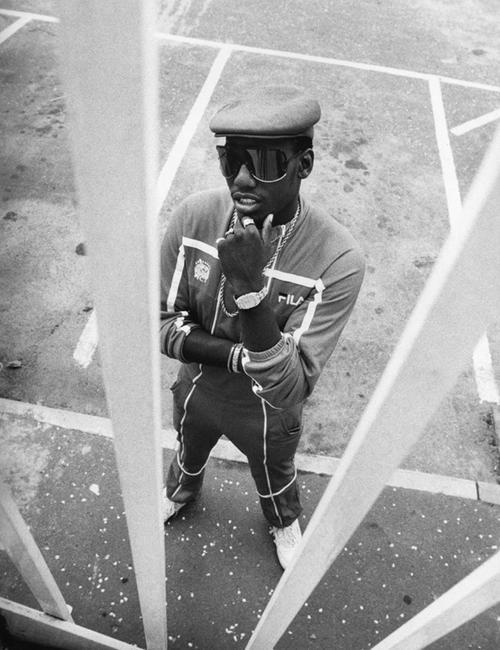




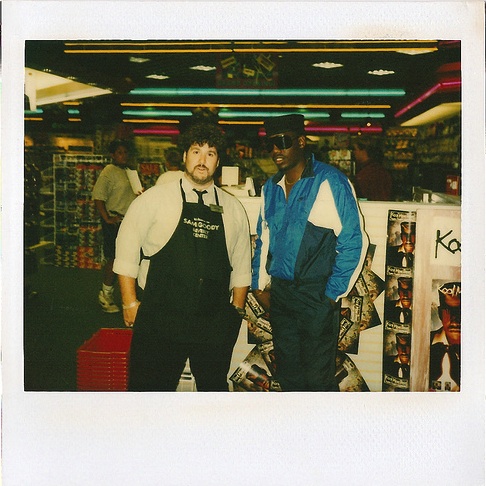






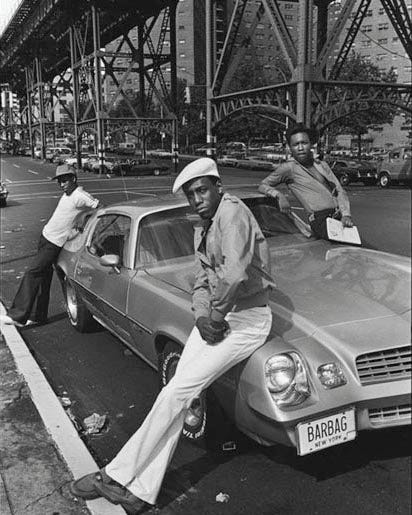
The Treacherous Three: L.A. Sunshine, Kool Moe Dee
and Special K
and Special K
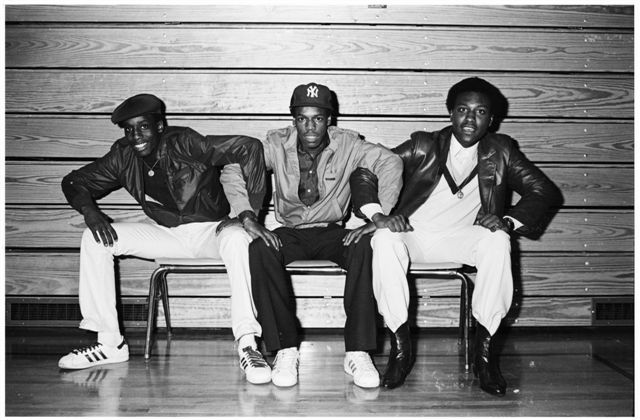

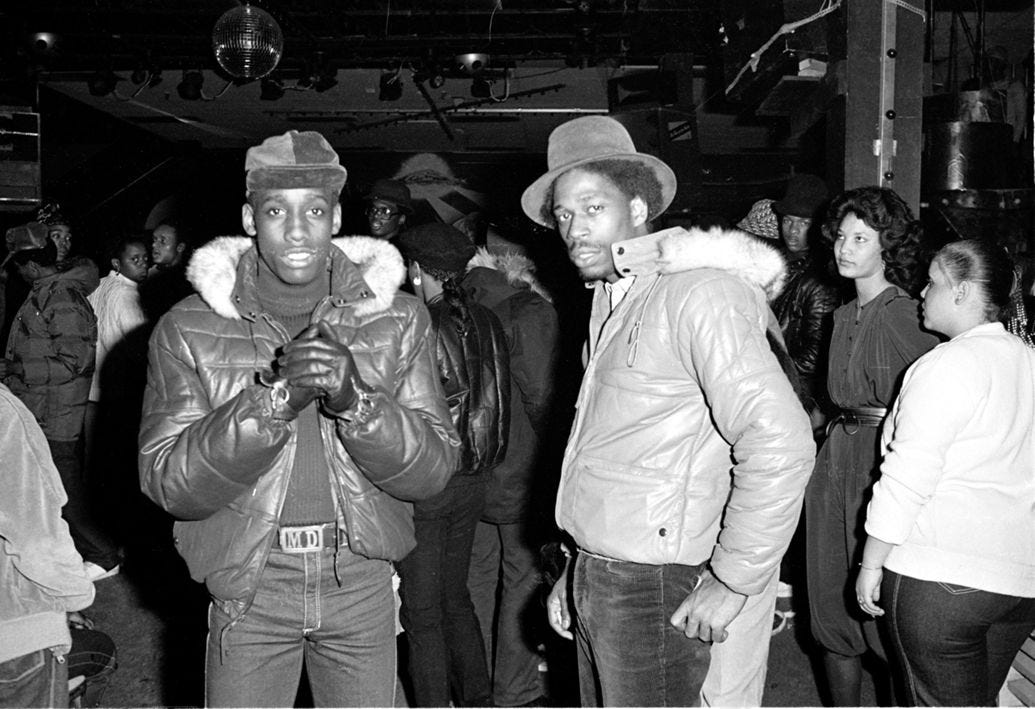
Kool Moe Dee and Grandmaster Caz
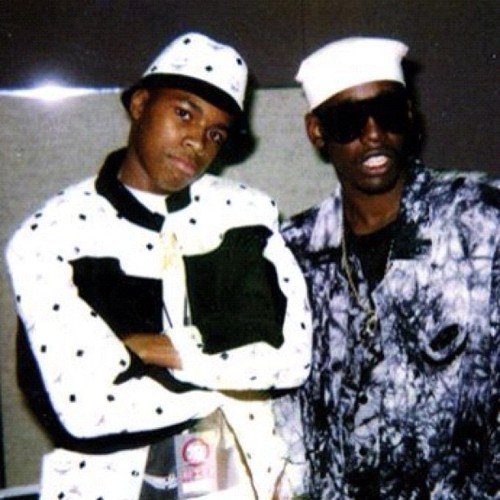
D-Nice and Kool Moe Dee

Teddy Ted, MC Delite, Kool Moe Dee, Tone Loc and Daddio
on the set of "Self-Destruction"


Kool Moe Dee

How Ya Like Me Now

Knowledge is King

Funke, Funke Wisdom
Mohandas DeWese was born on August 8, 1963 in New York City, New York. DeWese and brother Gamel's father was a small-time hustler while their mother was employed by the telephone company. DeWese's father left the family following a fight with his mother in which the former stabbed the latter, necessitating a two-week hospital stay. DeWese grew up on 128th Street and Convent Avenue in Harlem and befriended Lamar Hill, who lived on 129th Street. They both attended P.S. 129.
During his early teens, DeWese gravitated to the then fledgling culture of hip hop. He and his friends routinely attended hip hop shows on weekends, where they would watch performances by rap pioneers Grandmaster Flash and the Furious Five. DeWese's friend, Theodore "DJ Easy Lee" Moy'e, was the first in the neighborhood to obtain a set of turntables. In 1978, DeWese and friends Lamar "L.A. Sunshine" Hill, Gabriel "Spoonie Gee" Jackson began giving rap performances at Harlem parties, calling themselves the Treacherous Three. Moy'e served as the group's DJ. DeWese performed under the stage name "Kool Moe Dee". DeWese is credited with with inventing "speed rap" during this time. Inspired by a single fast-paced line delivered by rapper Kid Creole of Grandmaster Flash and the Furious Five, DeWese developed a fast-paced style which he employed throughout entire verses. Initially secretive about his new flow, DeWese unveiled it during a lunchtime performance in the cafeteria of Manhattan's Norman Thomas High School in his junior year, using songs from Herbie Hancock's 1973 jazz album Head Hunters as backing tracks.
In 1979, Jackson released a solo song, "Spoonin' Rap", under the guidance of his uncle, record producer Bobby Robinson, with whom he lived. When "Spoonin' Rap" became a hit, he left the Treacherous Three. Jackson was replaced by DeWese's friend and fellow Norman Thomas student, Kevin "Special K" Keaton. The group released their first single, "The New Rap Language", as the B-side of Jackson's, who had maintained close ties, second single "Love Rap". The single was released under Robinson's Enjoy Records, which he operated out of his record store, Bobby's Records and Tape Center, on Harlem's 125th Street and 8th Avenue. Besides "The New Rap Language", Enjoy released two more Treacherous Three singles between 1980 and 1981, including: "Body Rock"; and "Feel the Heart Beat". The success of "Feel the Heart Beat" led to the group touring the east coast with funk acts the Ohio Players, the Gap Band and Cameo. However, group members felt that they weren't being fairly compensated by Robinson. Though Keaton's response to the monetary disputes was to begin abusing cocaine and Hill's was to abuse alcohol, DeWese managed to remain substance-free. In fact, the other group members' addictions eventually served to alienate DeWese.
DeWese's stature in hip hop circles rose significantly when he soundly defeated rap pioneer David James "Busy Bee Starski" Parker in a rap battle on September 11, 1981. DeWese, who was serving as host that night at a show at the famed Harlem World nightclub, wasn't scheduled to perform as a contestant but decided to face Parker in order to end his win-streak. He forever altered the format of battle raps when instead of playing to the crowd, as was the norm at the time, he attacked the party rapper and perennial champion personally during their competition. DeWese famously targeted Parker's catchphrase and ignited the crowd when he delivered the lines: "Hold on Busy Bee, I don't mean to be bold but put that bah-diddy-bah bullshit on hold. Gonna get right down to the nitty grit -- gonna tell you a little something why you ain't shit. And I remember Busy Bee from the olden times. Remember Spoonie Gee used to sell you rhymes? But in a battle like this you know you'll lose. Between me and you who do you think they'll choose? Well if you think it's you I got bad news. Because to hear your name you're gonna hear some boos."
Also in 1981, following disputes with Robinson over their monetary compensation, the Treacherous Three secured a record deal with Sugar Hill Records, home to the Sugar Hill Gang and Grandmaster Flash and the Furious Five. In 1982, Sugar Hill released the group's songs "Whip It" and Yes We Can-Can".

In 1983, both DeWese and Hill appeared in the seminal hip hop film Wildstyle. That same year, rapper Antonio "Big Daddy Kane", who was a 14-year-old unknown at the time, encountered DeWese and challenged him to a rap battle. DeWese declined, telling Hardy, "Nah, shorty, you don't want it."
The following year, the Treacherous Three appeared in the film Beat Street, performing their song "Santa's Rap". 1984 marked DeWese and Keaton's appearance on the television show "Graffiti Rock" in a mock battle with Run-DMC. The battle was non-confrontational owing to DeWese's promise to the group's DJ Jason "Jam Master Jay" Mizell prior to taping not to attack Darryl "DMC" McDaniel and Joseph "Run" Simmons. DeWese appeared wearing his signature look -- a pair of Porsche 5260 sunglasses and a leather hat.
In 1985, Hill failed to show up to the studio to record the song "Turn It Up" as a protest of the group's low compensation from Sugar Hill. Keaton, who was also disillusioned by the meager payments, left before completing his contribution to the song. As a result, DeWese recorded "Turn It Up" as a solo song, giving him his first solo hit and launching his solo career.
In 1986, DeWese released his debut solo album on Jive Records -- the aptly titled Kool Moe Dee, largely produced by 16-year-old Harlemite Theodore "Teddy" Riley. The Riley-produced song "Go See the Doctor" became an underground smash and gave DeWese his first rap classic.
DeWese's sophomore album, How Ya Like Me Now, recorded in London, England, was released on November 3, 1987. The song of the same name, produced by Riley, contains DeWese's assertion that contrary to popular belief at the time, rappers from his era could in fact transcend party performances and make radio hits late into the 1980s. The insult-laden title track also features DeWese heavily criticizing rapper James Todd "LL Cool J" Smith for allegedly stealing his rap style. The album's cover infamously depicts DeWese's white Jeep parked on top of Smith's signature red Kangol. Smith famously responded on his 1988 song "Jack the Ripper" -- the B-side of his single "Going Back to Cali". Smith countered with: "The prince of the growl is on the prowl. How you like me now, punk? You're living foul. Here's what my game is, kill is what my aim is. A washed-up rapper needs a washer...Yo Bob, show that old school sucker punk what real hip hop is." How Ya Like Me Now's other big hit is the track "Wild, Wild West" -- an homage to his upbringing on the west side of Harlem. DeWese included a report card of 25 rappers, including himself, on the inner sleeve of the album. He graded the emcees using the following criteria that he felt were essential to being a good rapper: vocabulary, articulation, creativity, originality, voice, sticking to themes, records, versatility, innovating rhythms and stage presence. Not surprisingly, DeWese gave himself a 95 -- tying with Melvin "Melle Mel" Glover for the highest score. What is surprising is that he gave his nemesis Smith a 90. The Beastie Boys came in last with a 70. DeWese called them "pretty awful". The album's success led to DeWese subsequently touring with Heavy D. & the Boyz and R&B acts Guy and New Edition.
In 1988, DeWese appeared on the star-studded anti-violence hit "Self-Destruction", alongside members of Boogie Down Productions, Stetsasonic, Public Enemy, Douglas "Doug E. Fresh" Davis, Dwight "Heavy D." Myers, Joseph "Just-Ice" Williams and Lana "MC Lyte" Moorer.
DeWese's third album, Knowledge is King, again featuring production by Teddy Riley, was released on May 26, 1989. DeWese continued his feud with Smith on the album track "Let's Go". That same year, DeWese appeared on two tracks, alongside Hardy, on legendary producer Quincy Jones' album Back on the Block.
DeWese's fourth album, Funke, Funke Wisdom, was released on June 4, 1991. His final album, Interlude, was released on November 8, 1994.
Following the settlement of a dispute with the IRS, which informed DeWese that he owed $1.2 million, he permanently relocated to California.
Kool Moe Dee - How Ya Like Me Now
Kool Moe Dee and Special K on
"Graffiti Rock"
Kool Moe Dee - 50 Ways
No comments:
Post a Comment